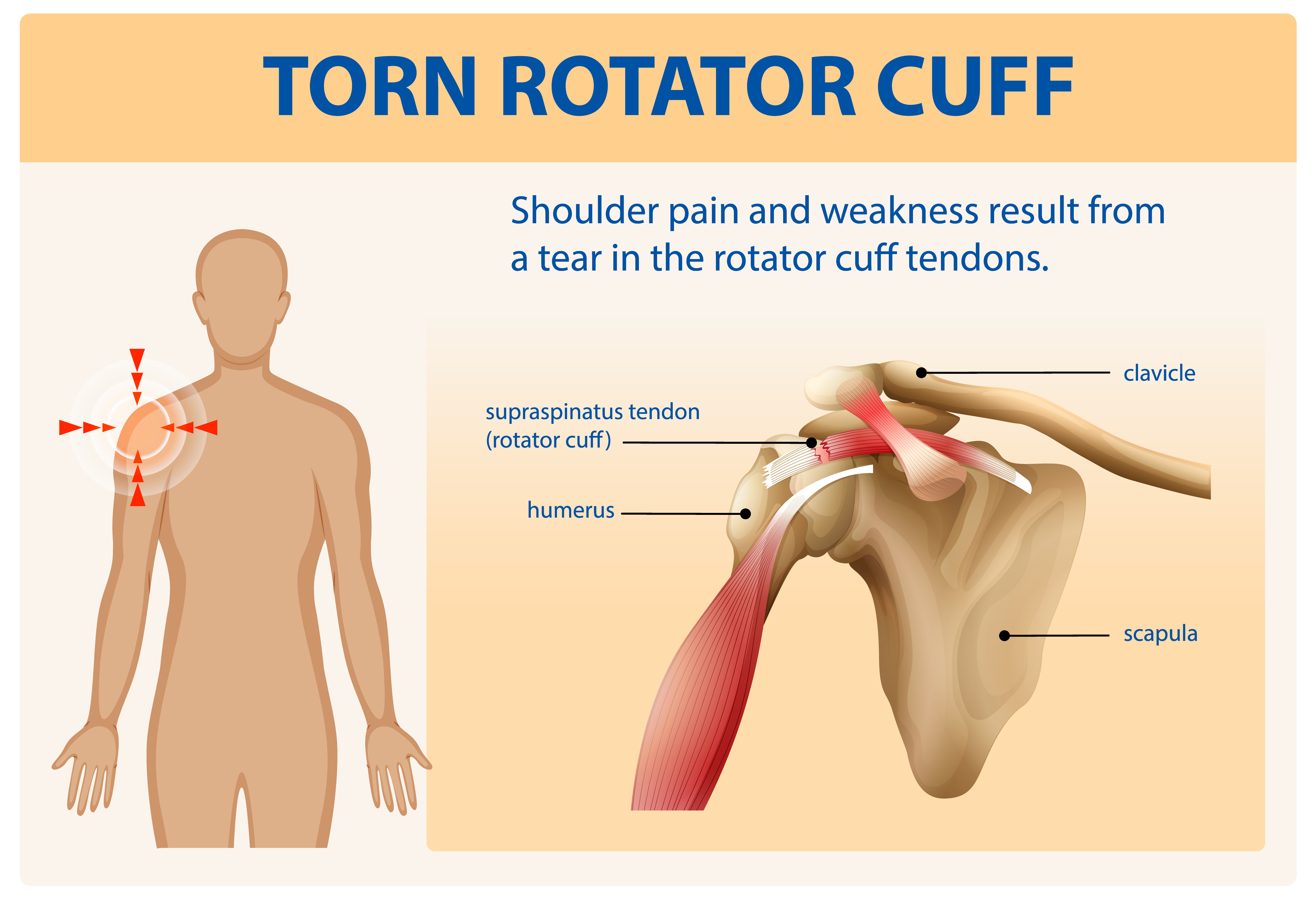Posted by M7LW Team • October 14th, 2025

The rotator cuff is a group of four muscles and their tendons that form a supportive "cuff" around the shoulder joint. These muscles – supraspinatus, infraspinatus, teres minor, and subscapularis – play a vital role in keeping the shoulder stable while allowing us to lift, rotate, and raise the arm. Whether it's reaching overhead, carrying groceries, or playing sports, the rotator cuff is constantly at work.
Rotator cuff tears may occur due to different reasons:
As we age, the rotator cuff undergoes several changes – reduced blood supply, muscle loss, tendon degeneration, and changes in bone structure. This makes tears more likely, even without a major injury. Interestingly, many tears are asymptomatic and may go unnoticed.
Rotator cuff tears can range from small, partial injuries to complete ruptures. The size of the tear does not always match the severity of symptoms. Common signs include:
Not every shoulder pain needs imaging. In many cases, your history and physical examination give enough information for a diagnosis. However, imaging may be recommended if the diagnosis is unclear or surgery is being considered:
The right treatment depends on your age, activity level, type of tear, and goals. Fortunately, many people improve with conservative (non-surgical) management, especially in degenerative tears.
Research consistently shows that physiotherapy can provide significant improvement, even without surgery.
Surgical opinion is usually considered if:
Rotator cuff tears are common, especially as we age, but they don't always require surgery. With the right physiotherapy program and activity modifications, many people regain strength, reduce pain, and return to their daily activities without invasive treatment.
At M7 Lifestyle & Wellness, our evidence-based approach to rotator cuff rehabilitation focuses on:
📍 Visit us at M7LW, Anna Nagar, Chennai, or reach out to schedule an appointment and experience our comprehensive care for rotator cuff injuries firsthand.
Categories: Shoulder Rehabilitation, Sports Injuries, Physiotherapy Tags: #rotatorcuff, #shoulderpain, #sportsinjury
Phone: +91 8148 66 5479
Email: m7physiocentre@gmail.com
Address: Anna Nagar, Chennai
Hours: Mon-Sat: 9:00 AM - 7:00 PM